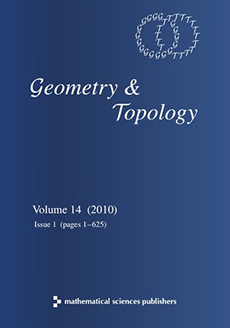Abstract
This is a continuation of our previous work with Botvinnik on the nontriviality of the secondary index invariant on spaces of metrics of positive scalar curvature, in which we take the fundamental group of the manifolds into account. We show that the secondary index invariant associated to the vanishing of the Rosenberg index can be highly nontrivial for positive scalar curvature Spin manifolds with torsionfree fundamental groups which satisfy the Baum–Connes conjecture. This gives the first example of the nontriviality of the group –algebra-valued secondary index invariant on higher homotopy groups. As an application, we produce a compact Spin –manifold whose space of positive scalar curvature metrics has each rational homotopy group infinite-dimensional.
At a more technical level, we introduce the notion of “stable metrics” and prove a basic existence theorem for them, which generalises the Gromov–Lawson surgery technique, and we also give a method for rounding corners of manifolds with positive scalar curvature metrics.
Citation
Johannes Ebert. Oscar Randal-Williams. "Infinite loop spaces and positive scalar curvature in the presence of a fundamental group." Geom. Topol. 23 (3) 1549 - 1610, 2019. https://doi.org/10.2140/gt.2019.23.1549
Information





